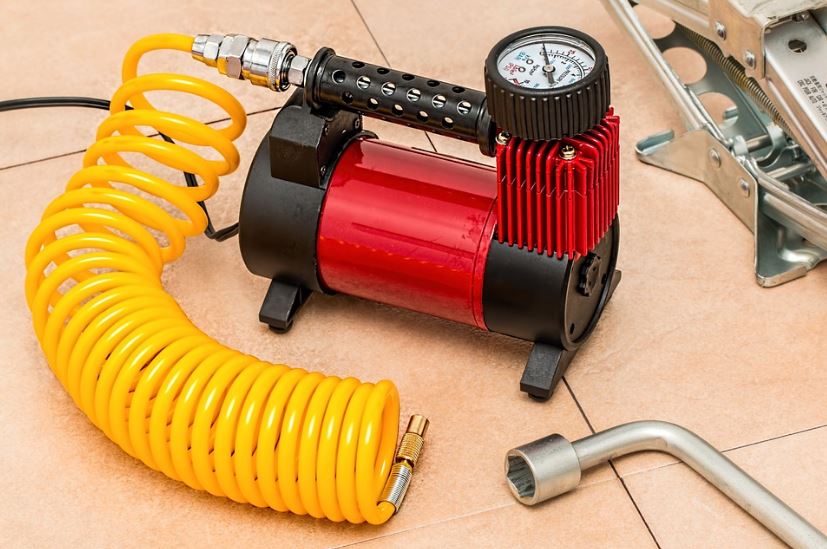There are several types of equipment that each home should have. These are versatile pieces of equipment and tools that provide a range of applications that make jobs and tasks at home easier. For example, homes should have basic small appliances for the kitchen, cleaning essentials and vacuum cleaners, laundry equipment, first aid kits, fire extinguisher, tarps, carpentry, gardening, electrical, and mechanical tools.
Why do you need an air compressor?
Many homeowners do not think that an air compressor is an essential equipment for the home. However, a portable air compressor can be an indispensable tool you can use in several ways. If you are into DIY, you can find several applications for a portable air compressor, such as using a nail gun. You also need an air compressor when you want to spray paint something or do minor DIY car repairs and maintenance, such as installing a new PVC valve, doing a car tune-up, or changing the fuel filter. Likewise, you can use it as a power washer, leaf blower, and tool to inflate car and bike tires.
Air compressor categories
You’ll find three categories of air compressors in the market.
1. Consumer-grade air compressors. They are also called single-stage models. The air compressor is small and typically used for inflating various inflatables such as portable kiddie pools, floaters, balloons, air mattresses, sporting goods, and tires. You can also use it to operate small load air tools like staplers and brad guns.
2. Professional-grade air compressors. They are suitable for more demanding use, such as the air tools used in woodworking shops, smaller auto shops, and other contractors. The professional-grade unit allows you to use more air for more extended periods. In addition, the unit will enable you to use several tools simultaneously with intermittent use.
3. Industrial-grade compressors. They provide the user with a steady flow of compressed air longer. You will find industrial-grade compressors in farming and agricultural operations, manufacturing, pharmaceutical, dry cleaning, food and beverage, and energy exploration.
Maintaining air compressors
Although an air compressor is a rugged machine, it also needs regular care and maintenance. One of the things you should do is to perform daily checks. Check for leaks and the levels of radiator coolant and oil. Ensure that the lamps and gauges are working. Drain the water from the fuel filters and check the fuel/water separator drain and the air cleaner service indicators. You should also clean the pre-cleaner dumps and see that the radiator cap is secure and closed tight. Likewise, ensure that the unit has enough fuel and that the fuel system is free from debris. Other features to check are the alternator and fan belts, the battery connections, and its tires if it is a mobile unit.
For monthly checks, look for parts that need replacement. It is also essential to check the tire lug nuts and hoses, and the automatic shutdown system, clean the air cleaner system, and check the engine radiator and oil cooler’s exterior.
At the 500-hour mark, you should replace all its filters. Then, at 2,000 hours, replace the separator element. But it may be replaced earlier if there is oil carryover or the service air begins to fog.
Air compressors are dependable and flexible. Ensure that you first consult with a reputable dealer to find the air compressor that will match your identified applications.

